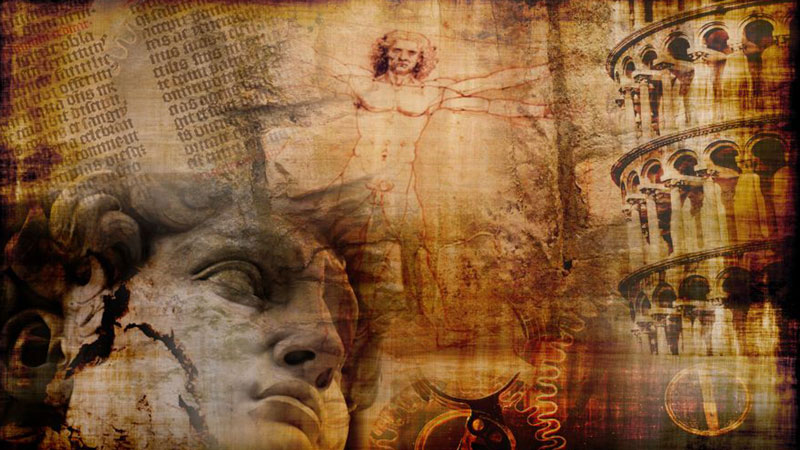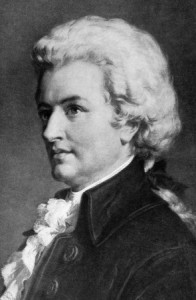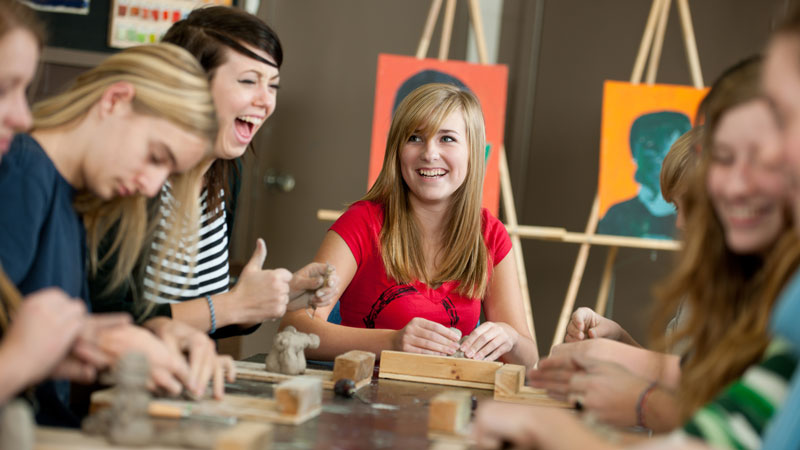
It’s mesmerizing to watch masters work, layering mark after mark with such speed, grace, and accuracy.
Unfortunately, for someone with less experience drawing, watching a master work can also be discouraging.
We watch the master work and think to ourselves, “I’ll never be able to that”. We make the assumption that the master has an ability that we don’t have – often referred to as “talent”.
And when we dismiss the skills of the master as a “talent”, then we cut ourselves off from ever attaining the level of skill that we are all capable of.
The reality is that we can all be masters. The problem is most of us simply don’t believe this.
Let’s take a look at a few examples. Maybe they will help to silence the voice of the doubters.
Case Study #1 – Mozart

Wolfgang Amadeus Mozart composed over 600 works in his short life. He was considered by many to be a prodigy, composing his first work at the tender age of 5. He has influenced countless composers and is clearly considered a “master” in his field.
It’s easy to brush off Mozart’s accomplishments as acts of “talent” – that he was simply born with this skill. After all, how else could anyone compose at such an early age?
It’s when we look deeper into Mozart’s life that we find the real secret to his mastery.
Mozart’s father, Leopold Mozart, was an accomplished composer himself. Not only was he a composer, but he was also a teacher. He even wrote a textbook on the violin. (Coincidently one of Mozart’s first instruments.)
So, this begs the question, would Wolfgang Amadeus Mozart have ever become the great composer from history if it were not for his father’s instruction?
Case Study #2 – Picasso
No introduction is necessary for this master. We all know the accomplishments and fame of Cubist artist, Pablo Picasso. He is, perhaps, the most influential artist of recent history.
Like Mozart, Picasso was considered a prodigy, showing great artistic skill at a very early age.
But it was by no accident! Like Mozart, Picasso’s father, José Ruiz y Blasco was also a drawing teacher at the Escuela Provincial de Bellas Artes. He guided his young “soon to be famous” son to art and helped to develop his skill.
Case Study #3 – A College Mate – It’s Never Too Late
It’s easy to dismiss the examples of Mozart and Picasso. It’s easy to point out that they started so early, convincing yourself that it’s just too late for you.
Luckily, it’s never too late to become a master. I have personally watched a person grow from a true amateur to a master in just four short years.
In art school, students are always comparing their skills to those of their classmates. It’s a competition of sorts, especially when your specialty is in illustration, as mine was.
I remember meeting Sean (Not his real name) in one of my drawing classes during my first year in the program. He was terribly shy and awkward.
I wish that there was a nice way to say that Sean’s work was terrible. But there isn’t, so I’ll leave it at that.
I remember thinking to myself, “What is this guy doing in this program?”
I knew that he wouldn’t make it and by year’s end, he’d be majoring in “Business”.
But every time I came to the studio, Sean was there. In a back corner of the room, he would sit, talking to no one, but drawing intensely. Late at night or early in the morning, it did not matter. Sean was there and he was working.
Over the next four years, Sean’s work improved. It was gradual, but it was noticeable.
His improvement was a direct result of hard work. It was his desire and commitment.
Each graduating class issues an award for the most outstanding student. Sean won the award for “The Most Outstanding Illustrator” for our class. He was clearly the best.
Sean had become a master.
The Master’s Hand
When we see the master make marks in a drawing, we are watching the expertise that has been developed after hours upon hours of practice. There’s nothing magical or mystical about it.

Over time, the ritualistic practice of the craft turns into intuition. Marks are made with speed, grace, and accuracy. In the beginning stages however, they were slow, awkward, and inaccurate.
Michelangelo is quoted as saying, “If people knew how hard I had to work to gain my mastery, it would not seem so wonderful at all.”
The question isn’t whether or not you’re capable of becoming a master – the question is how hard are you willing to work to become one.
If so, join over 36,000 others that receive our newsletter with new drawing and painting lessons. Plus, check out three of our course videos and ebooks for free.




